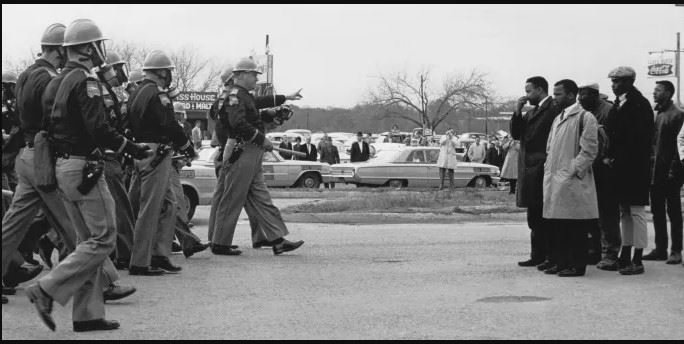| MLK On Monday, Montrose will celebrate MLK Day with a day full of events — from speeches and proclamations to a walk on Main Street, humanitarian awards and other events. Check today's edition of the Montrose Daily Press or Facebook for event details.
At the Hispanic Affairs Project office at 504 N. 1st St., we will be screening the documentary "John Lewis: Good Trouble." Lewis, who passed away in 2020 at the age of 80, was an integral figure in the civil rights movement. He also served in the House of Representatives representing the 5th District in Georgia from 1987 until his death.
Martin Luther King Jr. was the face of the civil rights movement in the 1950s and 1960s. If he was the general, then Lewis was an infantry soldier. Lewis was co-founder and chairman of the Student Non-Violent Coordinating Committee (SNCC), often putting himself in harm's way for the cause.
As a Freedom Rider, Lewis faced violence at the hands of pro segregation opposition including the infamous beatings by a mob in 1961 in Montgomery, Alabama. He would participate in sit-ins at segregated lunch counters designated for whites only. Beaten and arrested, he was never deterred. Images of the March 7, 1965 peaceful march across the then named Edmund Pettus Bridge in Selma Alabama, that turned brutal at the hands of local law enforcement changed the perspective of Americans across the country — the bridge is now named after Lewis. The conscience of America was formed as far as the plight of African Americans when the images of unarmed participants being beaten, including Lewis who suffered a head injury from a policeman's baton that knocked him unconscious, were broadcast on national television. He remembered being on the bridge prior to the attack and then awakening at the church that the march organizers were using as their headquarters. The march was in protest for voting rights, a fundamental right of all Americans that was not afforded to blacks in the deep south.  Two weeks later Martin Luther King Jr. led the now famous march from Selma to Montgomery. John Lewis was at the front of that march in which 3,000 people participated. "That is what we believed in, what we were all about — a mass movement, an irresistible movement of the masses. Not a handful of lawyers in a closed courtroom, but hundreds, thousands of everyday people—disciplined, peaceful people — taking their cause and their belief to the streets." Lewis recalled in his "Walking With the Wind: A Memoir of a Movement."
Lewis, the son of a sharecropper, honed his speaking skills as a child by preaching to the family chickens. His speech at the 1963 march on Washington D.C., which drew over 200,000 participants, was a defining moment for Lewis. While King drew the most attention for his "I have a dream" speech, it was a 23-year-old John Lewis who delivered a powerful speech that challenged the establishment in Washington to do more for voting rights and jobs.
"We march today for jobs and freedom, but we have nothing to be proud of. For hundreds and thousands of our brothers are not here. For they are receiving starvation wages, or no wages at all. While we stand here, there are sharecroppers in the Delta of Mississippi who are out in the fields working for less than three dollars a day, twelve hours a day." Lewis would say.
Lewis challenged President Kennedy concerning upcoming legislation that would support not only voting rights but would advance wages for the poorest across the country. He was warned prior to his speech that he needed to tone it down so as not to offend. He did not acquiesce.
"My friends, let us not forget that we are involved in a serious social revolution. By and large, American politics is dominated by politicians who build their careers on immoral compromises and ally themselves with open forms of political, economic, and social exploitation. There are exceptions, of course. We salute those. But what political leader can stand up and say, "My party is the party of principles"? For the party of Kennedy is also the party of Eastland. The party of Javits is also the party of Goldwater. Where is our party? Where is the political party that will make it unnecessary to march on Washington?" Lewis asked
Lewis would spend the rest of his life in service and encouraging the next generation and the generation after to stand out and speak up. To get into trouble, but it had to be what he called "good trouble" — trouble that would change not only a nation, but individual communities.
I hope that you will come join the celebration of the life of Martin Luther King Jr. and all of those who changed our country and the world for the better. We kick off the celebration at 9 a.m. at San Juan Brews. Let's see what kind of "Good Trouble" we can get into on Monday. Thanks for reading, Dennis Anderson
|
No comments:
Post a Comment